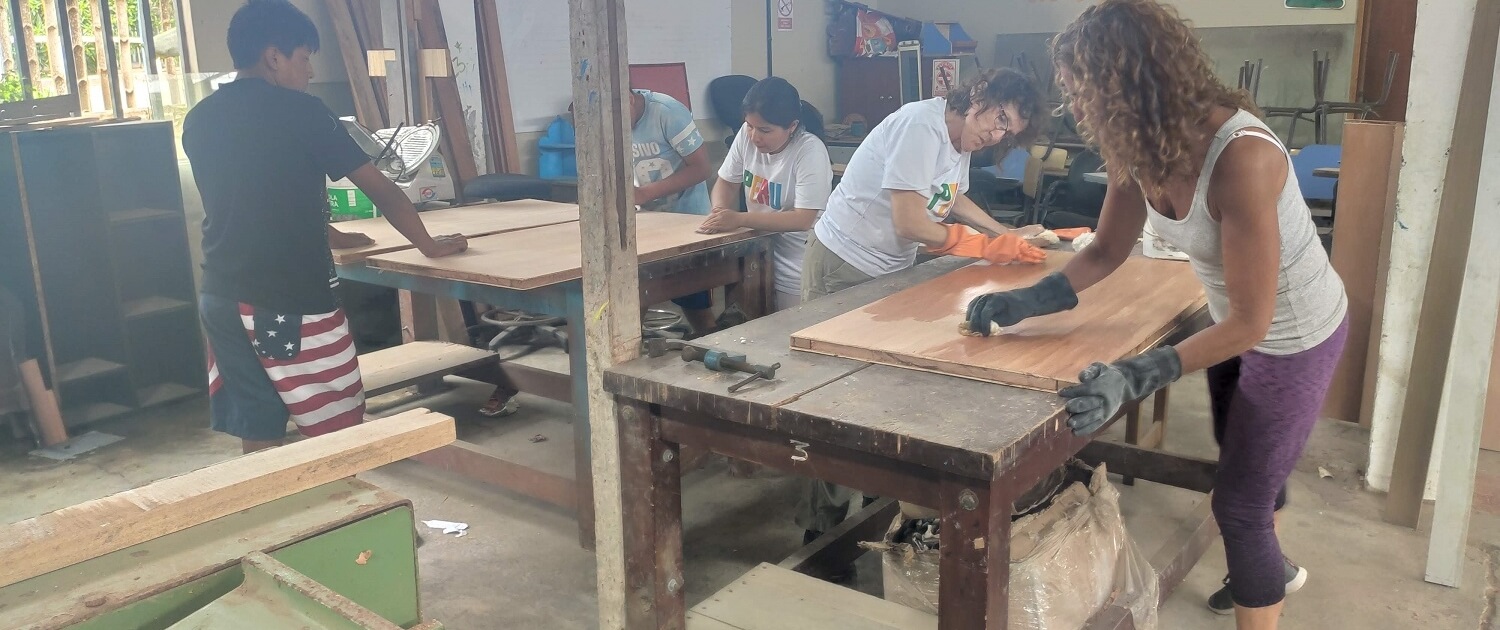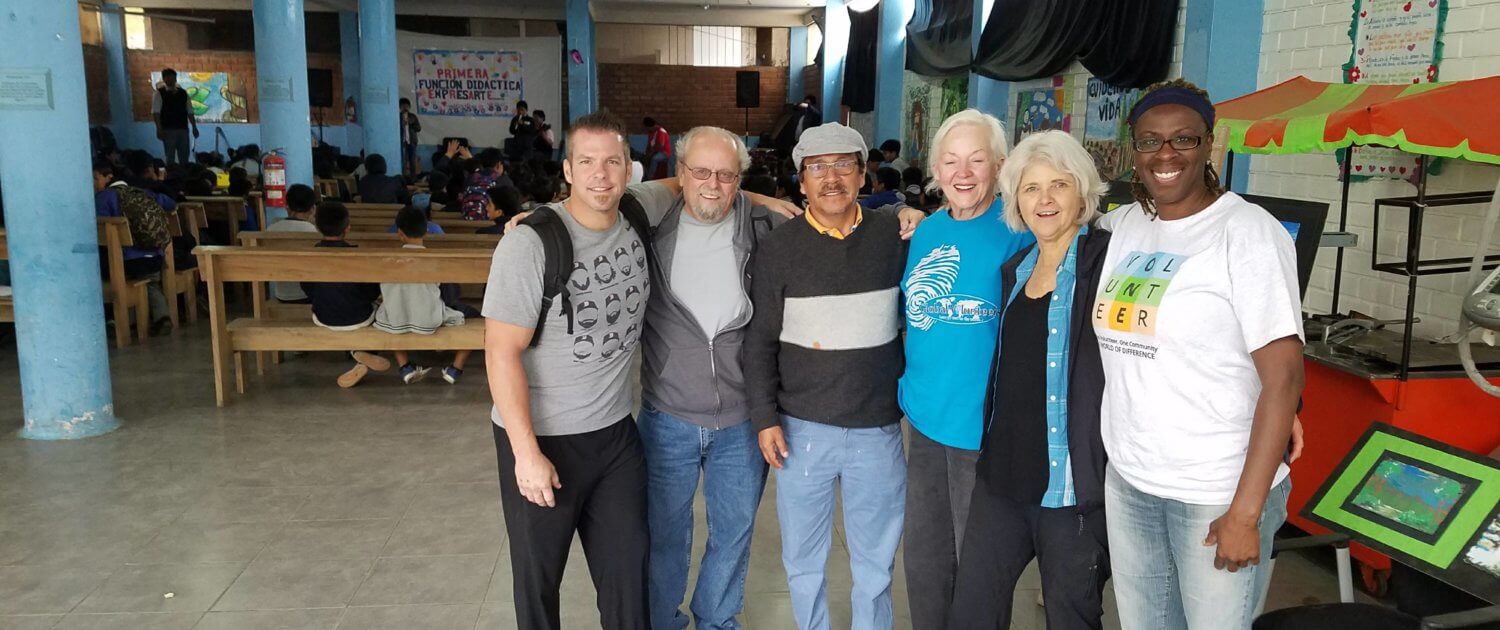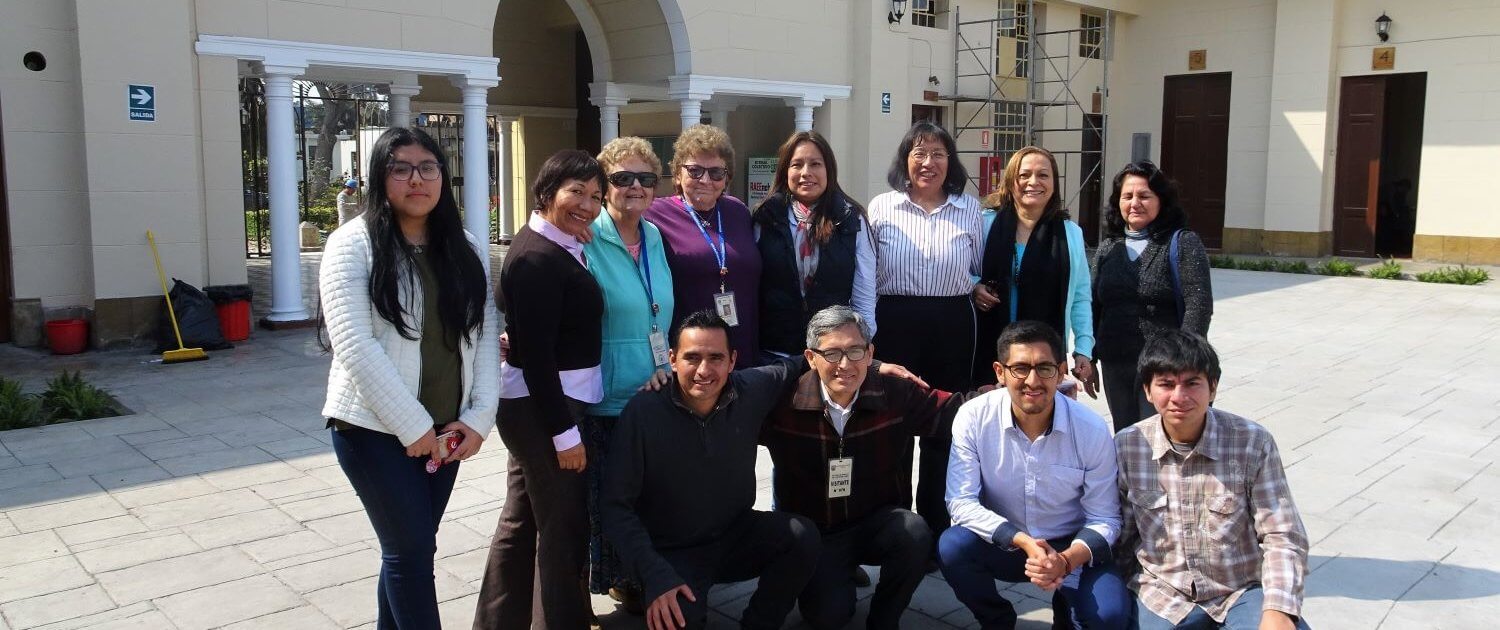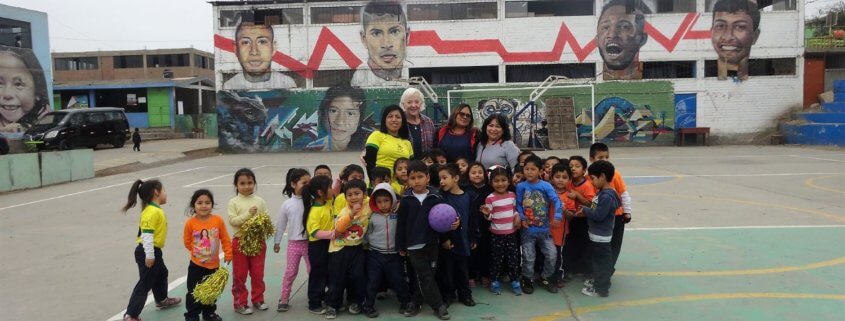Building Local Capacity in Peru
Global Volunteers’ goal is to support and fortify community leaders’ vision for self-sufficiency – ultimately to enable children and families to reach their full potential. An essential step towards this vision is building local capacity. In this interview as the fourth post in the series, Peru Country Manager Daniel Salazar shares how Peruvians are building their local capacity with the help of volunteers.
Who are Global Volunteers’ community partners in Peru and what kinds of projects do they work on for the wellbeing of their community?
In Peru we have two community partners: Sagrada Familia Children’s Community in Ventanilla and La Molina Agrarian University Language Center in La Molina in Lima.
Sagrada Familia is a private children’s home that works very hard to provide food, clothes, medicine, and education for at-risk children from all over Peru. The home also offers education and meals to the residents as well as to children from the surrounding shanty towns. Food, the most basic necessity, is a struggle everyday since Sagrada Familia does not receive government support nor a steady flow of donations. Even when food is available, sometime there’s not enough personnel to take care of the preparation, cooking, and serving of up to 1,400 people, including students and staff.
To provide basic health for the children and the people from the surrounding shanty towns, Miguel Rodríguez, the founder and director of Sagrada Familia, built a small clinic on campus. Similarly, education (free of charge) is provided by the local school Miguel built for resident children (approximately 250) and children from the area (approximately 1,100 of them attend school at Sagrada Familia). The school includes a daycare and includes all grades from pre-K through high school. As part of the educational program, Miguel puts a lot of emphasis on making sure the children learn English, care for the environment, have a chance to explore music and the arts, and above all, learn how to be principled and compassionate men and women.
Universidad Agraria La Molina (UNALM), as a public university in Peru, provides free education to students from all over the country, mostly from low-income families. This education includes English through the Language Center. Unfortunately, UNALM lacks the resources to hire native speakers as teachers.

What is the importance of these projects in the long run for the lives of local children and youth?
The reason children come to live at Sagrada Familia is because they have either been abused or neglected, or because their families simply don’t have enough money to care for them. For these children, coming to Sagrada Familia means a chance to get three meals a day, basic education, and access to healthcare. In other words, coming to Sagrada Familia means a chance for them to be in a position where, if they work hard, they will be able to move away from poverty and reach their potential.
At UNALM, students are required to pass an English proficiency test to graduate. But beyond this, UNALM students are eager to learn English to improve their academic and professional prospects. Most of them are motivated to work hard to grow as professionals, study abroad, and support their families. It is clear to them that they won’t be able to do this unless they are able to speak English.

How does Global Volunteers support these projects?
Global Volunteers support the efforts of Sagrada Familia by teaching English to high school and elementary school students, teaching sports to all grades, caring for children at the daycare, assisting pre-K teachers with their classes, providing medical care at the health clinic, assisting in the community kitchen, and working on construction and maintenance projects.
At UNALM’s Language Center, Global Volunteers provide free conversational English classes to students, staff, and the community.

What is the significance of volunteers’ work in the lives of local children and youth?
For this question, I will let the local community answer for me. Sagrada Familia Director Miguel Rodríguez says, “I must first point out that volunteers of all ages are like a mirror where we can look at ourselves. They show us that we can stand in solidarity at any stage in life. They teach us tolerance, education, respect, and sharing. The importance of volunteers is seen in each child’s life process. A child who engages with volunteers will not reject society. They become tolerant and enlightened. Many people outside Peru do not understand that here there are many socioeconomic and ethnic differences here. And there have been many radical groups who have taken advantage of this. But when the children have interacted with volunteers from other cultures, they don’t have resentment towards white people or Americans or people of wealth. Here, more than 50% of our children have gone to college, and about 40% have graduated college. They would not be able to this if they had not seen examples of others who have graduated college. They can’t just look at me; they need to look at many more examples besides me and their tutors here to be inspired and encouraged.”
Hans, a student from UNALM’s Language Center, is a familiar face for volunteers serving in Peru. He has taken advantage of every opportunity he’s had to join Global Volunteers’ classes. Here he shares the significance of volunteers’ conversational English classes for his own academic and professional goals:
How does the work Global Volunteers does support the self-sufficiency of our community partners and the sustainability of their project?
Global Volunteers always follows the direction of local leaders, supporting projects that directly tackle the communities’ most pressing issues. It is the local people, not our staff or volunteers, who are in charge. We don’t start work on our own nor bring projects that replace local projects. On the contrary, we offer extra hands to strengthen local projects and build their capacity. At UNALM, for instance, volunteers strengthen local capacity by directly supporting staff. We teach staff, including secretaries, professors, and even the language center director himself. Volunteers also share teaching ideas and material. We even have a whole shelf at the Language Center Library full of teaching materials that are available for local staff and students.
Volunteers don’t replace the work that our community partners do or take jobs local people can do either. Director Miguel Rodríguez explains how volunteers strengthen local efforts at Sagrada Familia: “Volunteers come to join us. If they come to teach English, they come to add to or practice what our teachers are already working on. For us, a volunteer can never take a job from our staff. When we didn’t have volunteers, we used to show videos of people volunteering so that the children would see that that there can be solidarity around the world. If we had no volunteers coming to our program, it would be a tough blow for us. Still, we would keep on working, but it would be really tough.” It is great for us to know that our community partners don’t depend on us, but it’s an even greater satisfaction to know that we are making life easier for them and effectively supporting their efforts to help local children and youth reach their potential.
Another post on this topic:




Leave a Reply
Want to join the discussion?Feel free to contribute!